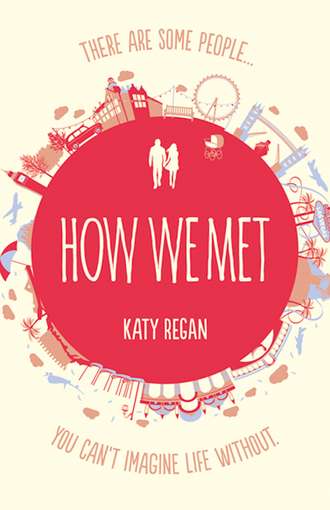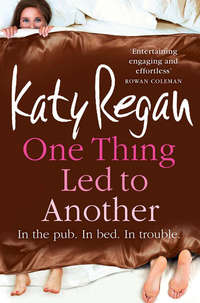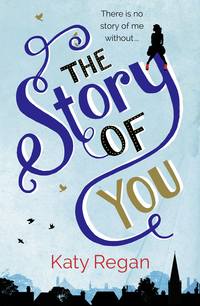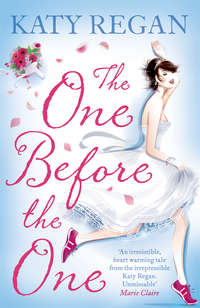
Полная версия
How We Met
Fraser hears the front door go. ‘Couldn’t get any frozen peas but they did have broad beans so I just got those,’ calls Karen down the hall. ‘Now are you feeling sick or dizzy at all?’
And Fraser looks at himself. Yes, I am, he thinks, I am feeling sick. It’s a type of sickness he’s felt before.
SEVEN
Then
December 1996
Lancaster
Fraser sloshed more wine into his glass and leant over the recipe book again: Assemble the Moussaka: Place a layer of potatoes on the bottom, top with a layer of aubergine, add meat sauce on top of aubergine layer and sprinkle with …
Bloody hell, this was like something off The Krypton Factor. It didn’t help that he had now consumed the best part of a bottle of wine and the words were beginning to swim: Potatoes, aubergine, meat. Or was it potatoes, meat, aubergine? He had no idea; all he knew was that she would be here very shortly and he had yet to make something called a béchamel sauce.
He lit a cigarette, wafting the smoke with his hand so that it mixed to form a miasma of Silk Cut, fried mincemeat and Fruits of the Forest, courtesy of the scented candles Melody was constantly buying for the house, because ‘candles create atmosphere’. It would seem so. On an average evening, Number 5 South Road could pass for the Sistine Chapel.
He surveyed the kitchen; it looked as if they’d been burgled and he quietly cursed himself for choosing a dish that somehow used up every utensil in the house. Why hadn’t he gone for something simple like a chilli or a curry?
Presentation was going to be key. He reached in the cupboard above and got out the big guns: Melody’s huge terracotta casserole dish. He set about arranging a layer of aubergine he’d grilled, wishing he’d actually followed the instructions and cut the aubergine lengthways rather than just chopping it into big chunks, which now sat mushy in the middle of the huge expanse of terracotta looking somewhat forlorn, like a mound of cow dung.
He only chose moussaka because moussaka was what Melody cooked for the last dinner party at their house a month ago and that seemed to go down well. (Although he didn’t like to think about that night much past the actual dinner stage, when it all sort of degenerated.)
Melody was a worldly, confident girl with an impressive chest, who Fraser thought had some peculiar ideas that didn’t seem to sit with her student status, like ordering the Sunday broadsheets to be delivered to their student hovel and having Greek-themed dinner parties where mates from her law course came wearing ball gowns, only to get shit-faced on bottles of cider.
But Melody was also kind and she was capable and at times like this, Fraser was very glad he lived with someone who owned cookery books. Now, though, as he eyed his moussaka and compared it with the one in the picture, he realized he hadn’t been aware of the ‘layers’ component; the layering part was something he had not allowed time for and it was these that were foxing Fraser right now. Far too much to think about for a man who, despite his resolve, was already half cut at barely seven o’clock.
And at nineteen years old, Fraser Morgan was also layered, or at least his mother was always telling him so (such a complicated child, we’ve no idea where we got him from …) and this was how he experienced life: it came in peaks and troughs that he couldn’t predict or control very successfully and, in one day alone, he could go from a moment of intense joy – like those few seconds between finishing a gig and the applause; was there a finer moment in life than that? – to bouts of melancholy, which saw him take to his room to strum on his guitar and listen intently to lyrics and maybe to write some. He came up with his best work when in the throes of melancholia.
He doubted he had ever really experienced ‘happiness’ as such, if happiness was the sort of unquestioning confidence he saw in his peers on his philosophy course. He had chosen philosophy, not because he had done it at A level (he’d done sciences) but because to him, it was the sort of subject you could only do at university.
He was the first of his family to go; most of his mates were staying back in Bury to resit their A levels or get jobs in plumbing or as fitness instructors and he wanted something that sounded impressive and brainy when they asked. ‘Computer science’ didn’t quite cut it, but philosophy? Now that was good.
Fraser loved his mates back home but sometimes he did yearn for something slightly more than the pub, and hoped that in a philosophy course he’d find that. He imagined it would be full of cool, interesting people who possibly wore scarves and scurried across campus carrying piles of ancient books and having ‘ideas’. Fraser very much liked ideas, he saw himself as relatively deep and sensitive. In reality, though, philosophy seemed to be a course chosen by earnest and yet alpha types with whom Fraser had nothing in common, and he felt a bit lost in lectures, scared to participate in case he said something rubbish and sounded too northern.
Those guys seemed to know instinctively what they wanted out of life. Fraser wanted to be in a band: he sang and played guitar and imagined that first album cover where he and Norm (drummer) and the two other members of the Fans (Fraser, Andy, Norm and Si – an acronym of the four members; they thought that was pretty slick) would be photographed in some ironically old-fashioned living room looking moody and emaciated, although he wasn’t sure Norm would quite be able to pull off that look at present.
That was it, he didn’t have a back-up plan. He had no further plans for life. These people, his peers, seemed to know exactly where they were going, whereas life to Fraser was an ever-unfolding mystery, exhilarating at times, but which all too often disappointed him. This was because he had not yet cultivated the art of making himself happy and still made terrible, often catastrophic choices based on fear, not having any better ideas (the moussaka being one such example) and flattery. This had always definitely been the case with girls.
Fraser was good looking; maybe not everyone’s cup of tea with his unrefined looks but definitely attractive. He was tall, in possession of a good head of hair and (so girls had told him) a pair of ‘beautiful, almond-shaped eyes’, which was a compliment he wafted away only to go home and peer at them in the mirror from different angles. Were they beautiful? Wasn’t that just a cliché handed out by girls when they were drunk and sentimental, which in his experience was pretty much all the time?
Whatever, Fraser Morgan was never short of female attention, never short of girls throwing themselves at him and telling him he was funny, yes, and ‘layered’, and had lovely eyes.
Although Fraser was bemused by all this attention, he was also flattered, and it seemed ungrateful and downright rude not to take them up on their offers. So far in one and a half years at Lancaster University, he’d been out with a Becca – one of Melody’s law-course mates, posh and a little bit terrifying. Being with Becca was like some sort of endurance test for the character and, Fraser had to admit, the challenge gave him a twisted thrill.
After Becca, there was Steph: sweet, clever and thoughtful. She was on his course and was everything Fraser had fantasized that a philosophy student would be like, as in she wore scarves and glasses and sat cross-legged a lot. (Actually this really disturbed him in the end. There is only so long a man can stare at a women’s crotch in tights before they just don’t find them attractive any more.)
Конец ознакомительного фрагмента.
Текст предоставлен ООО «ЛитРес».
Прочитайте эту книгу целиком, купив полную легальную версию на ЛитРес.
Безопасно оплатить книгу можно банковской картой Visa, MasterCard, Maestro, со счета мобильного телефона, с платежного терминала, в салоне МТС или Связной, через PayPal, WebMoney, Яндекс.Деньги, QIWI Кошелек, бонусными картами или другим удобным Вам способом.




